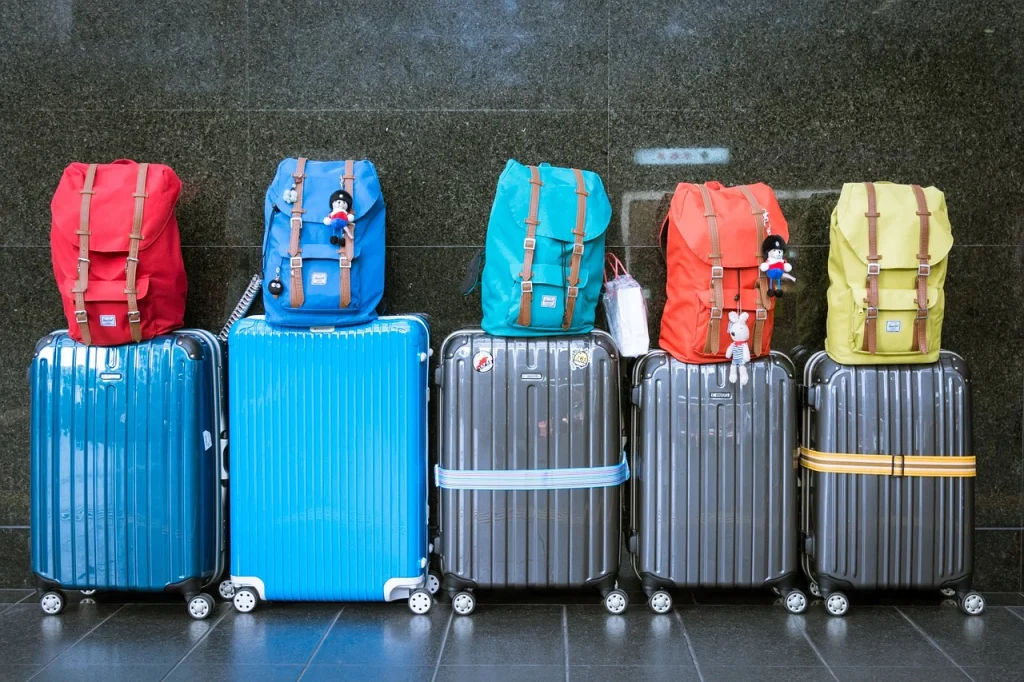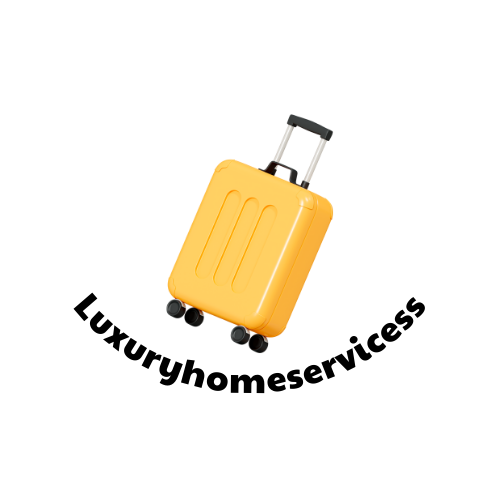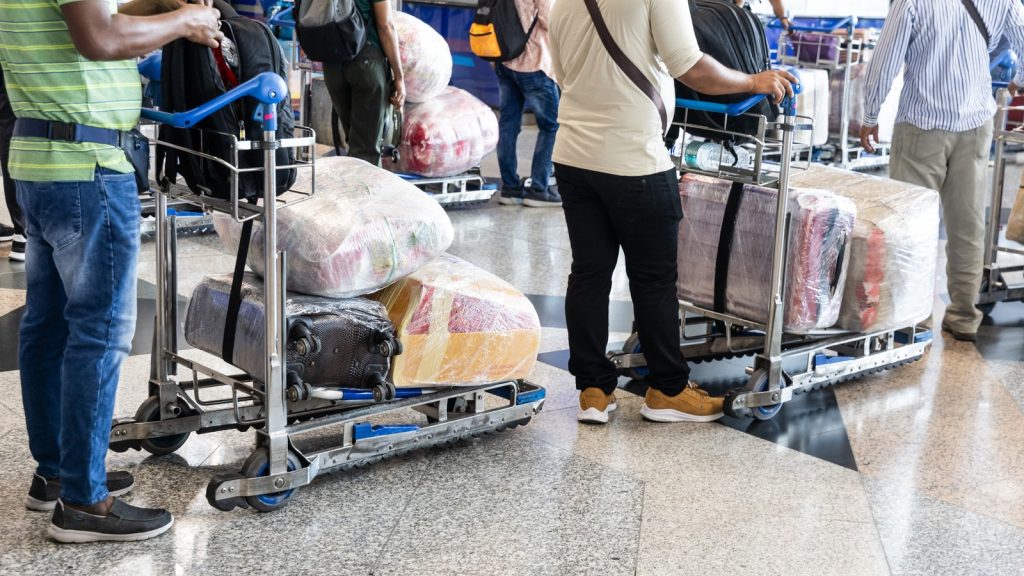Blog
How to Protect Your Suitcase from Damage While Traveling
Traveling is an exciting experience, but it comes with its own set of challenges, one of which is ensuring that your suitcase survives the journey unscathed. Whether you’re flying to a remote destination or simply taking a weekend getaway, your suitcase can face rough handling, extreme weather, and the general wear and tear of travel. Protecting your luggage from damage is crucial to preserving your belongings and ensuring a stress-free trip. From the airport conveyor belt to baggage claim, your suitcase is at risk of scratches, dents, or even more serious damage.
In this guide, we’ll share essential tips and strategies to protect your suitcase from damage while traveling. These practical steps will help extend the life of your luggage and ensure your belongings arrive in one piece, no matter how far you go.
1. Choose a Durable, High-Quality Suitcase
The first line of defense against luggage damage is investing in a high-quality suitcase. Look for luggage made with durable, impact-resistant materials that can withstand the rigors of travel. Here are some materials to consider:
- Polycarbonate: Known for its durability and lightweight design, polycarbonate is resistant to cracks, dents, and scratches. It’s one of the most popular materials for hardshell suitcases.
- ABS (Acrylonitrile Butadiene Styrene): This plastic is often used for affordable hard-shell luggage. It’s durable but may not be as tough as polycarbonate.
- Ballistic Nylon or Cordura: For soft-sided luggage, these fabrics are designed to resist tears and punctures, making them a good option for frequent travelers.

Investing in a suitcase with a strong outer shell can significantly reduce the likelihood of damage, especially when your luggage is thrown around during loading and unloading.
2. Use a Luggage Cover or Protector
Luggage covers are an inexpensive but effective way to protect your suitcase from scratches, dirt, and rain. These covers fit over your suitcase like a second skin and provide an extra layer of protection.
Benefits of Luggage Covers:
- Scratch and Dent Prevention: Protects your suitcase from the rough handling it might face during travel.
- Weather Protection: Keeps your luggage dry in case of rain, preventing moisture from damaging your bag or its contents.
- Easy Identification: Brightly colored or patterned covers can make your luggage stand out, making it easier to spot at baggage claim and reducing the risk of theft or mix-ups.
When choosing a luggage cover, make sure it fits your suitcase properly. A cover that’s too tight or too loose may not offer the protection you need.
3. Pack Smartly and Securely
How you pack your suitcase plays a major role in preventing damage to both your luggage and its contents. Follow these tips for secure and efficient packing:
- Distribute Weight Evenly: Avoid overloading one side of the suitcase. Even weight distribution prevents unnecessary pressure on one area, which could lead to dents or damage over time.
- Use Packing Cubes or Compression Bags: These help organize your belongings and keep them secure. Additionally, they prevent items from shifting inside the suitcase, which can cause the zipper to strain or the suitcase to warp.
- Place Fragile Items in the Center: If you have fragile items like electronics or glass, wrap them in clothing and place them in the middle of your suitcase. This protects them from being crushed by heavier items and from external impact.
- Avoid Overpacking: Overstuffing your suitcase can put extra strain on the zipper and seams. Make sure your suitcase is packed with just enough room to close easily, without forcing it.
4. Use a Luggage Strap or Lock
A luggage strap is a simple yet effective way to provide extra security and protection. It wraps around your suitcase, ensuring that it stays closed, even if the zipper is damaged or bursts open during transit. Some straps even come with locks for added security.
Benefits of Luggage Straps:
- Prevents Zipper Damage: If your zipper becomes compromised during travel, the strap keeps your suitcase closed and its contents intact.
- Deters Theft: Straps with locks can act as a deterrent to would-be thieves, making it more difficult for someone to access your belongings without detection.
- Improves Suitcase Integrity: The strap helps to keep your suitcase’s structure intact, preventing it from bulging or becoming misshapen under the stress of overpacking.
5. Be Mindful of Airport Handling
One of the most common causes of luggage damage happens during airport handling. While there’s not much you can do to prevent baggage handlers from tossing your suitcase, you can take steps to minimize the risk of damage:

- Avoid Fragile Stickers: While it may seem helpful to label your suitcase with “Fragile” stickers, it could actually increase the likelihood of mishandling. Baggage handlers may treat your luggage with extra care, but others may see the “fragile” label as a cue to be overly cautious, leading to unnecessary jostling.
- Arrive Early: Early check-in can reduce the risk of your luggage being hastily loaded or unloaded during last-minute changes in flight schedules.
- Consider a Non-Expanding Suitcase: Expandable suitcases are convenient, but they also leave your bag more vulnerable to damage when overstuffed. Consider using a non-expandable suitcase if you’re worried about rough handling.
6. Avoid Storing Valuables in Your Checked Luggage
While it’s essential to protect your luggage from external damage, it’s just as important to keep your most valuable items safe. Items like electronics, jewelry, or important documents should always be kept in your carry-on bag to reduce the risk of theft or loss. Even though a suitcase may be well-protected against bumps and scratches, there’s no guarantee that valuables will remain safe in checked luggage.
Tips for Safe Packing:
- Keep Electronics and Jewelry in Your Carry-On: Electronics, such as laptops, tablets, and cameras, should never be packed in checked luggage. These items are not only valuable but also sensitive to impact and moisture.
- Use Anti-Theft Bags: For added protection, consider using a carry-on bag with anti-theft features like lockable zippers and RFID-blocking compartments.
7. Inspect Your Luggage After Travel
After you’ve reached your destination, take the time to inspect your suitcase for any signs of damage. This is especially important if you’ve experienced rough travel conditions or noticed any issues during your journey.
Things to Check:
- Wheels: Make sure all wheels are intact and functional. If a wheel is damaged or broken, it could make the suitcase difficult to maneuver.
- Zippers: Check that all zippers are working smoothly and have not become bent or damaged.
- Handles: Ensure that handles are sturdy and not loose. A broken handle can make your suitcase nearly impossible to carry.
If you do notice any issues, it’s best to get the suitcase repaired as soon as possible, particularly before your next trip.
8. Opt for Protective Luggage Storage
When storing your suitcase in your hotel room or at the airport, it’s important to avoid placing it in areas where it could be damaged. If you’re in a hotel, try to keep your suitcase elevated off the floor, away from damp or dirty areas. In airport terminals, use designated luggage racks or storage areas to prevent your suitcase from being crushed or scraped by other travelers’ bags.
Conclusion: Keep Your Luggage in Top Shape
While you can’t control everything that happens during your travels, taking these simple steps will go a long way in protecting your suitcase from damage. Whether it’s choosing a high-quality suitcase, using a luggage cover, packing carefully, or being mindful of how your luggage is handled, you can ensure that your belongings remain safe and your suitcase stays in good condition.
By following these tips, you’ll not only prolong the life of your suitcase but also enjoy a smoother, less stressful travel experience. Happy travels, and remember: a little preparation goes a long way in safeguarding your luggage!


